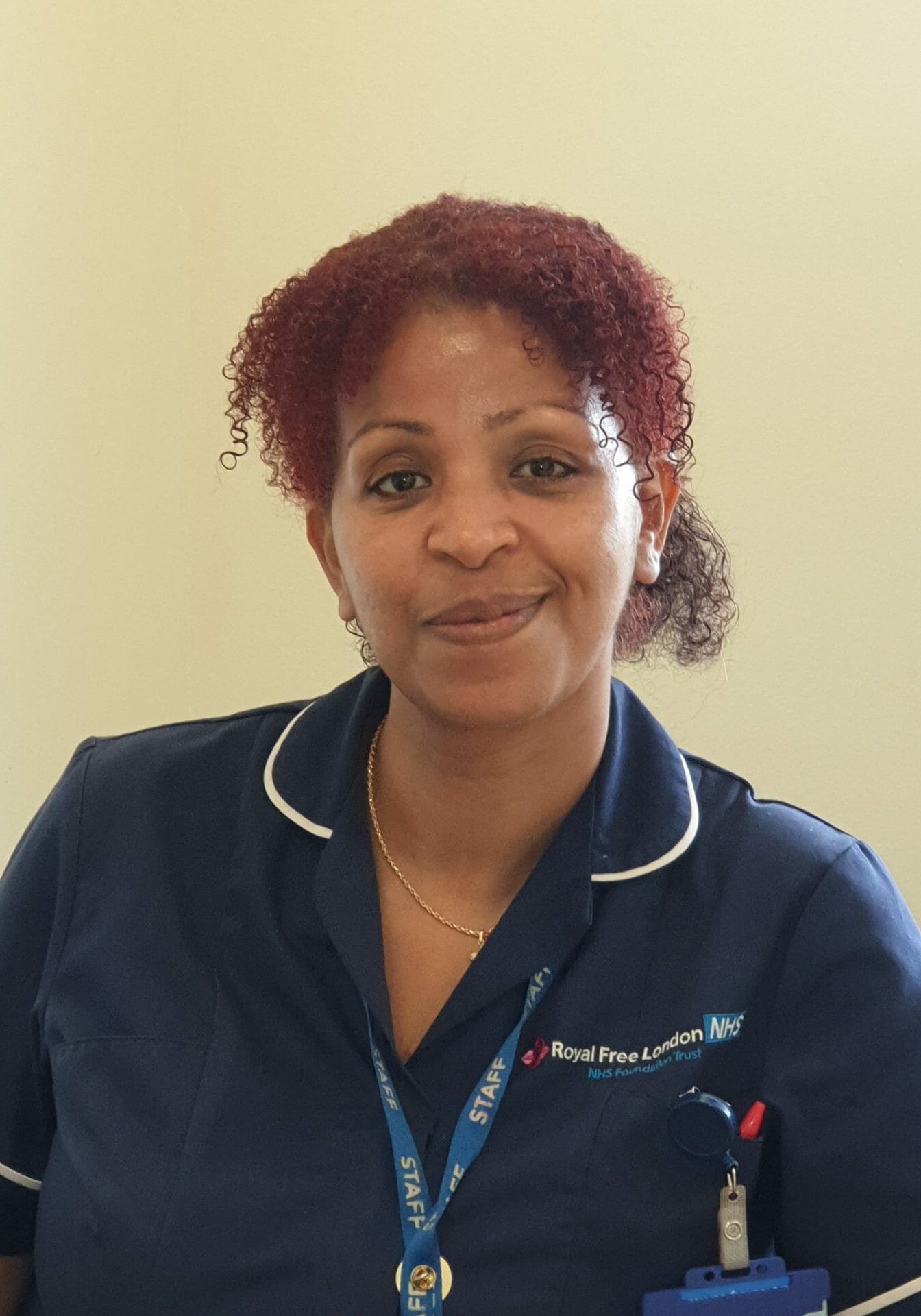60 seconds with Rahel Sebhat
Find out more about Rahel, as she share her experience working as ward manager at Private Patients Unit.
How long have you been with Royal Free London – Private Patients Unit and what does your role involve?
I started working at Royal Free London - Private Patients Unit in 2013 as a junior sister, I can’t believe it has been eight years! I now manage 12 West ward as a sister.
Part of my role requires me to coordinate shifts; the clinical shift starts at 7:30am but I like to arrive early to speak with the nurse in charge of the previous shift and to look at the staffing and skill mix for the day and night. I need to ensure that the patients are safe and the nurses are working within their skills and capabilities.
One of the most important parts of the day for the team is the mid-morning handover, this is where the nurses are told about the admissions to the ward and allows them to plan and prioritise their time. We all handover to each other; both nurses and healthcare assistants discuss the inpatients and raise any concerns.

What is a typical day like on the ward?
Although there is no ‘typical’ or ‘normal’ day, there are a handful of tasks and goals that work their way into my routine quite frequently.
What motivates you in your job? And how do you motivate others in your team?
I’m motivated by the fact that when I leave work at the end of a shift, I know I’ve helped make a difference in the lives of my patients and their families. Seeing the smiles on their faces and watching them improve makes me look forward to work. That’s why I became a nurse.
Being a dynamic leader helps me to motivate staff, boost their engagement, and keep them aligned; I try to affect change that will make their daily lives easier.
To further keep the team motivated I ensure I use simple pleasantries such as ‘thank you’ and ‘please’; these words can go a long way in helping nurses feel valued and worthwhile. Additionally, I also focus on the good things the nurses do on a daily basis and acknowledge this.
Encouraging my team makes them know that I care and keeps them more optimistic. I know how tough it is to be a nurse on the floor as I have been there before; this is how I motivate my staff.
I know how I like to be treated so I treat others the same.
What do you enjoy about being a ward manager at PPU?
I enjoy the fact that PPU is filled with friendly staff! We are a fairly small unit so you get to know everybody and the different wards will work together and help each other as necessary. We have good support and strong leadership from our senior management team; it also encourages me to enjoy being a ward sister.
How has the COVID-19 pandemic affected your work? What learning experiences will you or have you implemented in your role during COVID-19?
The COVID-19 pandemic has changed our world, locally and globally, and the nursing profession has been one of the most impacted by the changes, the devastation, and the exposure to the disease. No one could have predicted how this pandemic would impact our work flow, our priorities, our expectations, and our resilience.
During the first wave as a new manager, my team and I were the first to face the virus in the PPU ward. There was a lot of reassuring that I needed to do. In total we opened and closed several wards, this involved me managing variety of people which helped me in understanding different individuals and personality. We also started the new covid-19 secure transplant ward, which was a great learning curve for me and all the PPU team. In spite of the challenges, I enjoyed working with my NHS colleagues.
What advise can you give for those who wish to be a ward sister or want to pursue a career in nursing leadership?
There are several things new managers can do to give a good impression. We often forget that nursing is as much about good management as good care giving.
Whether that is managing yourself on a shift so that all your patients receive good care or being a ward sister responsible for care given by their team 24 hours a day, we are all taught to manage caseloads of patients, on a ward or in the community, from day one.
You have to build on that premise - it is not just about going on a formal “management” course. If you are a good care giver and you care about people, you’ll be a good manager because you’ll care about staff and naturally nurture them to be the best and provide the best care. Nurses are good at following their gut instincts, and will deal with situations working out what naturally feels fair and always maintain professionalism.
Leaders must practise what they preach. If I ask my team to do anything new, such as implement team nursing, or the mundane, such as cleaning the sluice, I always roll my sleeves up and do it myself too to show it is possible.
I am a great believer in pushing the boundaries and testing new ideas but, if there are safety rules, stick to them as they are there for a reason.
Support your staff if they can demonstrate a good reason for a course of action. Never shy away from managing staff performance. No one can improve if you don’t share your expectations and observations.
